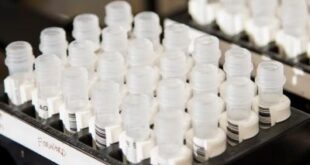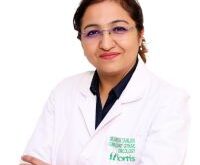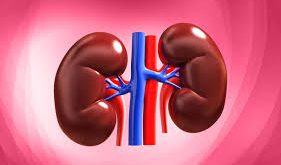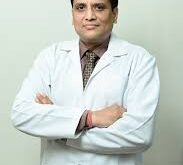- Faster transplantation
- Less drug-related side effects
- Reduced treatment costs
Date, 4, 2023 – February 4, 2023 is World Cancer day, which focuses on the prevention, research and treatment of cancer. The first ever completed clinical trial facilitated and organized by DKMS that may be practice changing for patients suffering from AML (acute myeloid leukemia). Patients in urgent need of a stem cell transplant could be transplanted much faster – and benefit from shorter hospital stays as well as fewer side effects by not having to undergo lengthy high-dose chemotherapy.
This important conclusion was reached by the researchers at the University Hospital Carl Gustav Carus Dresden, the National Center for Tumor Diseases Dresden (NCT/UCC), and the University Hospital Münster (Germany). The trial was supported by the Study Alliance Leukemia (SAL), the Cooperative German Transplant Study Group, and the Gert and Susanna Mayer Foundation.
The ASAP study was a Germany-wide randomized controlled trial in which 18 clinics participated. The goal was to get AML patients to stem cell transplantation as soon as possible without requiring complete remission before allogeneic stem cell transplantation. Attempting complete remission prior to transplantation has been considered the standard of care. “The surprising finding of the clinical trial was that patients did not benefit from a full course of chemotherapy prior to transplantation to induce complete remission. Rather the study suggests, that if a matched donor is available, 12 days of preparatory chemotherapy followed by immediate transplantation yields comparable treatment outcomes with fewer side effects and shorter hospital stays”, summarizes Prof. Dr. Johannes Schetelig who heads the Clinical Trials Unit of DKMS as well as the Stem Cell Transplantation Unit at the University Hospital Carl Gustav Carus Dresden, Germany.
Patients worldwide can benefit
If the results are translated into clinical practice, numerous patients worldwide may benefit in the future, as patients who urgently need a stem cell transplant could be transplanted much faster – without the stressful phase of salvage chemotherapy and long hospital stays. Even with intensive chemotherapy, the previously targeted complete remission can only be achieved in about 50 percent of patients. If the corresponding treatment is unsuccessful, most patients have so far received further anti-leukemic drugs with potentially burdensome side effects, depending on their overall state of health. Immediate transplantation could also allow more patients access to this potentially life-saving treatment.
The results of the ASAP trial demonstrate that AML patients will have the same chances of cure in the future without having to be hospitalized longer than necessary and the cost of therapy will be significantly lower.
Why is it important that DKMS as a non-profit organization funds clinical research?
“It is our declared goal to improve the survival of people with blood cancer. To achieve this, it is essential to continuously develop existing forms of treatment and to constantly explore new approaches in blood cancer therapy. To fulfill our life-saving mission, we invest in science and research: with success, less side effects and hospital stays with equally good treatment results,” highlights Elke Neujahr, Global CEO DKMS.
DKMS is an economically operating non-profit organization and its revenues go to social or scientific purposes. This way, the organization is able to financially support meaningful projects that help blood cancer patients around the world. “Often, sponsors of clinical research pursue economic interests. It is therefore less common to conduct a clinical trial that challenges a standard medical intervention than to investigate new therapeutic approaches. That’s why it’s necessary for non-profit organizations like DKMS to also conduct clinical research. This way, we can help ensure that patients receive the best possible treatment and that we actually advance patient care,” says Dr. Alexander Schmidt, Global Chief Medical Officer at DKMS.
The organization also employs a wide range of programs and services to improve the access to transplantation for patients in low- and middle-income countries who would otherwise not receive treatment. For example, DKMS provides free HLA typing to identify family donors and funds stem cell transplantation for children with thalassemia in India to lessen the burden for patients and their families. The organization has also funded a transplant station in Bangalore where up to 120 children annually get their second chance at life. In Poland, DKMS is helping to ensure that hospitals are better equipped to treat leukemia patients. And in Chile, the lack of resources and infrastructure are main barriers for blood stem cell transplantation. There, the organization supports patients and the healthcare system so that more people can receive life-saving treatment.
 Newspatrolling.com News cum Content Syndication Portal Online
Newspatrolling.com News cum Content Syndication Portal Online







